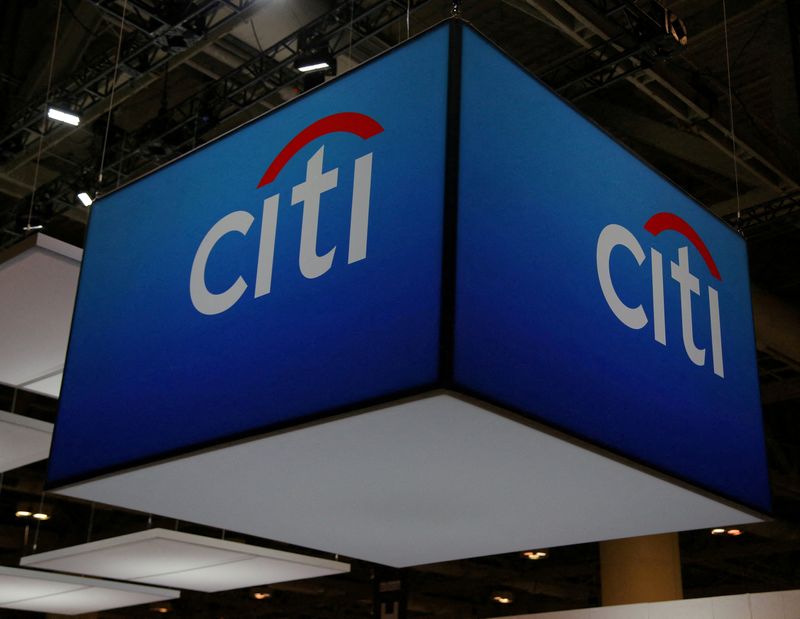By Chibuike Oguh
NEW YORK (Reuters) - A decision by banks to change how they invest spare capital is limiting their ability to extend loans to companies with weak balance sheets during the financial market downturn, fund managers and investors said.
Banks offer junk-rated loans to companies with limited cash flow when they are confident they can sell them to investors as a way to recycle capital.
The primary buyers are collateralized loan obligations (CLOs), funds which have struggled of late to raise capital because of a pullback by one of their biggest investors - banks.
Banks have traditionally snapped up highly rated bonds from CLOs, which use sale proceeds to buy junk-rated, or leveraged, loans from banks.
Bank demand has cooled in the last few months because higher interest rates have made the bond returns less attractive than more highly rated assets such as U.S. Treasury securities and mortgage-backed bonds, market sources said. This is weighing on new CLO offerings.
GRAPHIC: U.S. CLO issuance https://graphics.reuters.com/BANKS-LOANS/CLO/gkvlgybybpb/chart_eikon.jpg
The bottleneck happened as central banks rapidly raised interest rates to fight inflation, leading banks to reduce lending to companies with weak balance sheets. The impact ranges widely across the financial system, investors and bankers said.
"The core buyers of investment grade CLO liabilities have been impacted by interest rate moves and global financial market volatility, reducing their capacity to make new investments in CLO debt," said Doug Paolillo, head of investment firm Sixth Street Partners' CLO business.
Banks also have been struggling to sell leveraged loans because buyers are seeking more favorable terms. Many of the loans banks are selling were priced before Russia's invasion of Ukraine and the rapid central bank rate hikes that have fueled concerns about an economic slowdown.
GRAPHIC: U.S. leveraged loans https://graphics.reuters.com/BANKS-LOANS/CLO/akvezwewwpr/chart.png
CLOs, which account for about two-thirds of the demand for leveraged loans, are also struggling to raise capital. CLO issuance fell to $72 billion in the United States in the first half of 2022, down about 11% from a record $81 billion in the year-ago period, according to data from financial data provider Refinitiv.
As a result, U.S. leveraged lending fell 31% to $479 billion in the first half, down from $692 billion in the same period last year, according to Refinitiv.
"There has definitely been a pullback in CLO triple A (bond) buyers in the market versus 2021," said Lauren Basmadjian, head of U.S. loans and structured credit at private equity firm Carlyle Group (NASDAQ:CG) Inc.
GRAPHIC: U.S. Private equity-backed M&A https://graphics.reuters.com/BANKS-LOANS/CLO/klpykyqwkpg/chart.png
IMPACT ON LEVERAGED BUYOUTS
Many private equity firms rely heavily on leveraged loans, because their investment strategy involves saddling companies with debt to the point they are rated junk. The downturn in leveraged loans has limited their ability to make deals.
Private equity-backed mergers and acquisitions dropped 42% to $352 billion in the first half of 2022 in the United States, from $604 billion in the year-ago period, according to data provider Dealogic.
CLO managers are trying to win back banks and other investors with higher interest rates. The average coupon on top tier CLO bonds widened from secured overnight financing rate (SOFR) - the benchmark interest rate used by most banks - plus 134.6 basis points in January to SOFR to 184.3 basis points in June, according to Refinitiv.

But higher rates have not been enough to attract as many investors as last year, and CLO managers are reluctant to offer even higher coupons that cut into their profits.
"If I have to pay a higher rate on the triple A (CLO bonds) that I'm issuing, then I'm going to demand a higher rate on the assets that I'm buying, which are sub investment grade," said Clayton Perry, head of structured credit at private equity firm KKR & Co (NYSE:KKR) Inc, which has a CLO business.